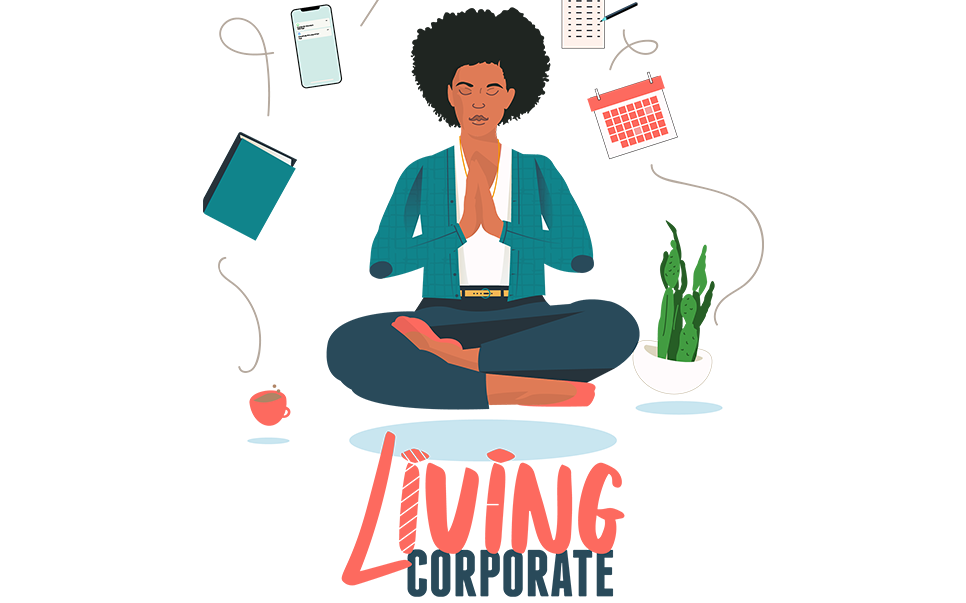
Episode Notes
Zach chats with Ruchika Tulshyan, award-winning author & CEO and founder of Candour, about equity’s place in the future of work. Ruchika explains to us what it is about the diversity, equity and inclusion space that had her commit so much of her life to it, and she ties her breadth of experience back to her childhood in Singapore, where she grew up with people of all different nationalities, cultures and religions. She takes us through her career journey and graciously shares her struggles and triumphs along the way.
Connect with Ruchika on LinkedIn, Twitter and Instagram.
Visit her personal website. You can find out more about Candour by clicking here.
Check out Ruchika’s Harvard Business Review contributor page and get reading!
Read the piece mentioned in the show titled If You Don’t Know How to Say Someone’s Name, Just Ask.
Visit our home page!
TRANSCRIPT
Zach: What’s up, everybody? It’s Zach with Living Corporate. That’s right. I’m back. It’s probably Tuesday, or maybe you’re listening to this later. It’s, like, a Wednesday or a Thursday. I don’t know, but we’re recording this, and we’re recording this, of course, we’re having real talk in a corporate world. We center and amplify underrepresented voices in the corporate space, and by corporate space I just mean at work, okay? So this is not, like, an elitist thing, right? So, like, if you work at Wendy’s, hey, this is for you too, okay? If you work at Goldman Sachs, this is for you too. And you’re probably a white man listening to this, and if so, hey, man, thank you for listening to the podcast. I hope that you learn something from this. But this is for everybody is my point, and we do this, we amplify and center underrepresented experiences, by having underrepresented folks–these are, like, influencers, journalists, activists, educators, public servants, entrepreneurs, executives, recruiters, anybody, really, who is able to really come on and just have some real talk with us. And we’ve had some amazing guests every single week. I mean, every single week we have some fire–I mean, fire fire fire guests, and this week is no different, okay? ‘Cause you know who–I don’t even know if y’all know who we have, but I’m up about to tell you. We have Ruchika Tulshyan. Ruchika is a diversity & inclusion strategist, award-winning author and journalist. She is the author of “The Diversity Advantage: Fixing Gender Inequality In The Workplace,” a book on strategies for organizations to advance women. Ruchika’s company, Candour advises a number of organizations on diversity, equity and inclusion strategy. Ruchika is also the 2019 inaugural distinguished professional-in-residence for Seattle University’s communication department. Ruchika, hold on. I’ve gotta let the air horns fly. How are you doing?
Ruchika: I am doing very well, Zach. I’m so excited to be here. [children cheering sfx, both laugh] I love it, I love it. I really do.
Zach: We gotta get into it. We gotta get into. You’re an author, a journalist, an international speaker, and a CEO of your own consulting firm. Like, what is it about this space, about this diversity, equity and inclusion space, that had you commit so much of your life to it?
Ruchika: You know, it wasn’t planned at all, Zach. And I grew up outside the United States. I’m from Singapore originally, so I think about food all the time. In fact, right now while I’m talking I’m thinking about “What’s my next meal?” But–
Zach: What’s your favorite food?
Ruchika: So, you know, being from Singapore, we eat everything, but probably anything Asian, anything with noodles or rice. I can eat rice for breakfast, lunch, dinner, supper, snack, midnight snack. [laughs] You get the drift.
Zach: Yes. No, I do. So do you like pad thai?
Ruchika: I’ll never order it in the United States ’cause I’ve had it in Thailand quite a few times now.
Zach: Oh, my gosh. What it is like in Thailand?
Ruchika: It’s so different. It’s not sweet. It’s just–it’s got this beautiful… it’s like umami, you know? Like, there’s a different flavor altogether. So yeah, I haven’t–you know, I tried it once or twice in the U.S. in different cities, and I was like, “Yeah, this is not going to be the thing for me.”
Zach: You know, it’s interesting that you say that, because I remember–so I went to Japan. I was in Japan for a couple weeks last year–well, in 2018–and I remember just eating the food there. It’s like–it’s crazy that, like, most Americans don’t have all of their toes cut off from diabetes with how much sugar we have in our food, right?
Ruchika: Yes, yes, yes. And that’s–I mean, I could talk about this all day, because, you know, I think about this all the time. And again, I think it’s all related, right? And I think even talking about diversity and inclusion, like, really understanding people, finding a common language based on food I think is something that’s really special and a very, very important way to connect with people.
Zach: You know, I 100% agree. And just one last thing about the food, ’cause you talked about, like, when you have something in the States and then you–for me, ’cause I’m from here and, like, all my people, as far as I can go back, are from here, right? But when I went to Japan I had sushi in Japan. I said, “Wait a second.” [laughing]
Ruchika: Right? Isn’t it completely different?
Zach: I said, “What?” I just was–I mean, I had, like, a spiritual moment. It was just like, [blessings come in sfx, both laugh]. I said, “My gosh, my taste buds.”
Ruchika: Isn’t it? And all their food, everything. I mean, if you’ve had chocolate in Japan, if you’ve had, like, cookies in Japan, if you’ve had a cake in Japan, it’s like nothing you’ve ever tasted before, you know?
Zach: Yes, and I’m just–and how conditioned I’ve been eating here, it’s like–I’m used to, like, if I eat something, like, a big meal, I’m used to be a little–like, a little sleepy afterwards, right? So I’m like, “Wait, why can I still walk? I can still walk around and, like, think cognitively after eating this meal. [?]” Okay, so I’m sorry. Long segue aside about food–but it’s important though. It’s a connection to culture. I’m right there with you.
Ruchika: So we were talking about diversity and inclusion, right? [both laugh] And how did I get into it? Well, you know, it’s connected. You know, it is connected. So I think I was kind of built for this in some way, although it wasn’t planned. So growing up in Singapore, I just grew up with people of all different nationalities, all different cultures, all different religions, and it was very much a way of my life, and I moved around quite a bit when I was younger. But what it really exposed me to was the fact that, you know, at the end of the day we’re all the same, you know? In many ways we want the same things. We really, really just want to be happy. We want to be heard. We want to feel valued and respected. And so I really grew up with that concept, you know, as a part of my life, just the way it was. You know, my friends were from all over the world, my teachers were from all over the world, and I really grew up with sort of an idealistic, almost Kumbaya sort of belief in the world, and when I moved to the United States about eight years ago, that was a very big shock for me, you know? And I really saw what I still think in some ways is modern-day segregation. You know, I really saw it in full force. There’s a stat that three out of four white Americans don’t have a single friend of color, and I think that’s really concerning, because I grew up in a very different sort of environment, and it really made me see the–it’s awesome. I mean, just talking about food, you know? Being exposed to different cultures, different types of food. I feel so lucky, and I actually think people are missing out, and so for a vast majority of Americans, the most diversity they ever experience is actually in the workplace. So, you know, I’m sort of setting myself up to saying that, you know, that was the early part of my life where I really felt, you know–I just had a connection, but I never thought that I would work in this field. I didn’t even know this field existed. And what changed for me is I began my career as a journalist and was really happy about it, loved it, then moved to Seattle and sort of transitioned into tech, because that’s what everyone does here, and it was the most challenging experience of my life, you know? I really encountered sexism and racism that I just wasn’t–you know, I didn’t think that it could happen to me.
Find out more at https://living-corporate.pinecast.co

